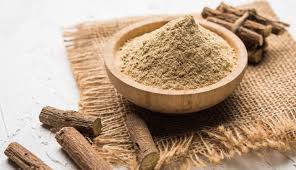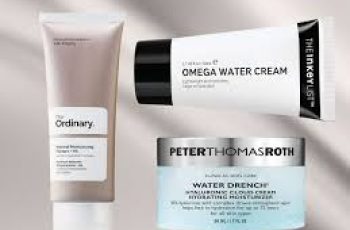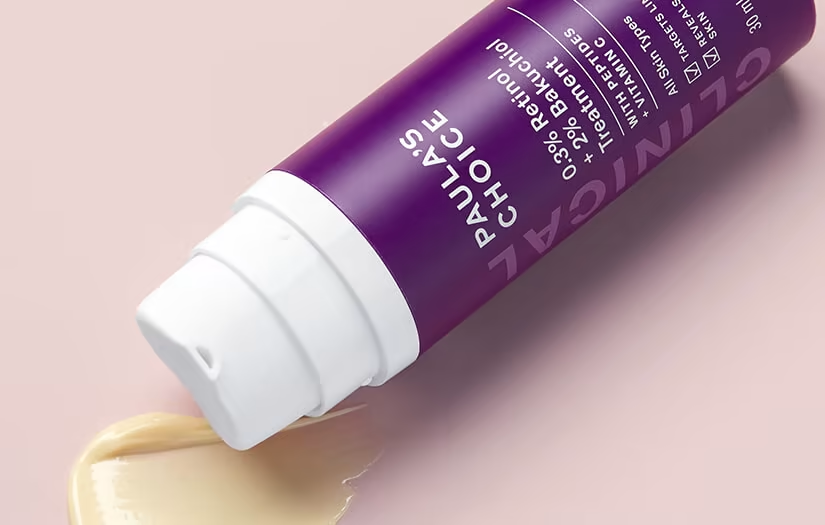
Licorice Extract in Skin Care: Benefits, Uses, and Considerations
Licorice root extract is a powerhouse ingredient that’s increasingly found in skin care products ranging from moisturizers and anti-aging creams to sunscreens and treatments for acne and hyperpigmentation. With a long history of medicinal use dating back to ancient civilizations like Egypt, Greece, and China, licorice extract is known for its versatility and a wide array of skin benefits.
But is it right for your skin type? Let’s explore what licorice extract is, its key benefits, potential risks, and how it’s used in modern skincare.
What Is Licorice Extract?
Licorice extract (scientifically known as Glycyrrhiza glabra) is derived from the roots of the licorice plant. This plant is native to Europe, Asia, and parts of the Middle East and has been widely used in traditional medicine for thousands of years. The extract contains bioactive compounds that make it useful not only in medicine but also in cosmetics and skincare.
The primary active compound in licorice extract is glabridin, which is responsible for many of its therapeutic effects. Licorice root extract is typically pressed into an oil and refined for use in skin care products, though it can also be found in its raw, powdered form. Additionally, some variants like Chinese licorice root (Glycyrrhiza inflata) are also used for skin care, though they are not the exact same species.
Key Benefits of Licorice Root Extract in Skin Care
Licorice extract is celebrated for its multi-faceted properties, offering a variety of benefits that make it suitable for a wide range of skin concerns. Some of the most notable benefits include:
1. Anti-Aging and Skin Repair
Licorice extract is known to reduce the appearance of wrinkles and fine lines over time. This is primarily due to its antioxidant properties, which help neutralize free radicals that contribute to the skin’s aging process. Free radicals are molecules that damage skin cells and accelerate the breakdown of collagen and elastin, leading to premature aging. By reducing oxidative stress, licorice extract helps protect the skin’s structure and promote a healthier, more youthful complexion.
2. Skin Lightening and Hyperpigmentation
Licorice root extract is commonly used in skin care products designed to treat dark spots and hyperpigmentation. One of its most powerful attributes is that it acts as a tyrosinase inhibitor. Tyrosinase is an enzyme responsible for triggering the production of melanin, the pigment that gives skin its color. By inhibiting this enzyme, licorice extract can lighten dark spots and even out skin tone.
For individuals dealing with melasma (a common pigmentation disorder, especially during pregnancy) or post-inflammatory hyperpigmentation (PIH) caused by acne or skin injuries, licorice extract can be an effective treatment. However, results may take 8-16 weeks to become noticeable, so patience is key.
3. Soothes Inflammation and Reduces Redness
Licorice extract contains several anti-inflammatory compounds that can help reduce skin irritation, redness, and sensitivity. This makes it an ideal choice for those dealing with conditions such as rosacea, eczema, or general skin irritation. By calming the skin, licorice root extract can restore balance and improve overall skin health.
4. Acne and Antimicrobial Benefits
The antimicrobial properties of licorice extract make it a useful ingredient in acne treatments. It helps reduce the bacteria that contribute to acne breakouts while also offering anti-inflammatory benefits that soothe inflamed skin. Additionally, licorice extract can help prevent the formation of acne scars by reducing inflammation and aiding in the skin’s healing process.
5. Moisturizing and Skin Hydration
Licorice extract contains a variety of moisturizing fatty acids, which help keep the skin hydrated and soft. This makes it an excellent addition to moisturizers and serums designed to lock in moisture and maintain the skin’s natural barrier. The fatty acids in licorice extract help nourish the skin and keep it smooth and supple.
6. Protects Against Sun Damage
Licorice root extract is packed with antioxidants that help protect the skin from environmental damage, particularly from UV rays and pollution. Some studies suggest that licorice extract can help prevent sun-induced damage and oxidative stress that leads to premature aging and even skin cancer. Additionally, licorice extract can help lighten pigmentation caused by sun exposure and sun spots.
Licorice Extract in Skin Care Products
Licorice extract can be found in a wide range of skincare products, including:
Anti-aging serums and creams: Thanks to its antioxidant and anti-inflammatory properties, it’s frequently included in products aimed at reducing the appearance of wrinkles, fine lines, and signs of aging.
Moisturizers: Licorice’s ability to hydrate and soothe makes it a great addition to daily moisturizers.
Sunscreens: Due to its protective qualities against UV-induced skin damage, licorice extract is often included in sunscreen formulations.
Facial peels and exfoliants: It can assist in gentle exfoliation and skin rejuvenation, helping to reveal brighter, more even skin.
Skin lighteners: Licorice extract is a common ingredient in products designed to lighten dark spots, melasma, and other pigmentation concerns.
Is Licorice Extract Safe for Use in Skin Care?
For the majority of people, licorice root extract is considered safe for topical use. However, there are some important considerations:
1. Pregnancy and Safety Concerns
Licorice extract contains glabridin, which has been associated with potential teratogenic effects (causing developmental abnormalities in a fetus) when consumed in large amounts. As a result, it is generally advised that pregnant women avoid using products that contain licorice root extract, especially in large quantities. Some studies have suggested that high levels of licorice exposure during pregnancy can affect fetal development, leading to differences in growth, puberty onset, and even cognitive function.
However, there are glabridin-free licorice extract variants available, which may be considered safer for use during pregnancy, but their effectiveness in treating hyperpigmentation is reduced compared to the full version.
2. Allergic Reactions
Although rare, it’s possible for individuals to develop an allergy to licorice extract. Symptoms may include itching, redness, swelling, or irritation. It’s recommended to perform a patch test on a small area of skin before applying a product containing licorice extract to your face or body.
3. EWG Rating
The Environmental Working Group (EWG) gives licorice root extract a safety score of 5 on a scale from 1 to 10, with 1 being the safest. This score indicates that, while licorice extract is generally safe for most people, there are concerns about its use during pregnancy.
Active Compounds in Licorice Root Extract
Licorice root extract is rich in several bioactive compounds that contribute to its therapeutic properties:
Glabridin: The primary active compound responsible for inhibiting melanin production and treating pigmentation issues.
Glycyrrhizin: A compound known for its anti-inflammatory and anti-microbial properties.
Liquiritin and Liquiritigenin: Flavonoids that help with hyperpigmentation and skin lightening.
Glycyrrhetinic acid: Known for its soothing effects on the skin, it can also help improve skin elasticity and reduce wrinkles.
Salicylic acid: A mild exfoliant that promotes skin renewal and helps with acne treatment.
These compounds work synergistically to provide a variety of skin benefits, making licorice extract a highly valued ingredient in skincare.
Conclusion: Is Licorice Extract Right for You?
Licorice extract is a versatile and highly beneficial ingredient for many skin types. Whether you’re dealing with hyperpigmentation, acne, signs of aging, or simply looking for an antioxidant-rich moisturizer, licorice extract has much to offer. However, if you are pregnant or have sensitivities to this ingredient, it’s important to use caution.
Before incorporating licorice root extract into your routine, it’s always a good idea to consult with a dermatologist or take a Baumann Skin Type quiz to ensure that the product aligns with your skin’s unique needs and concerns.
With the right application and care, licorice root extract can help you achieve a brighter, more even complexion while providing vital protection against environmental damage.


